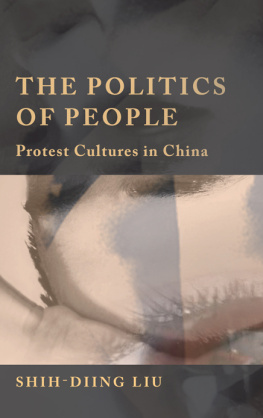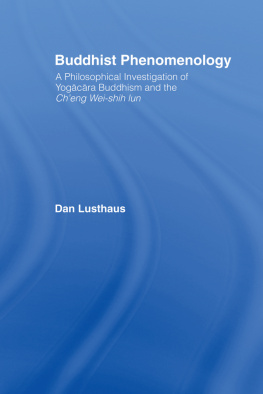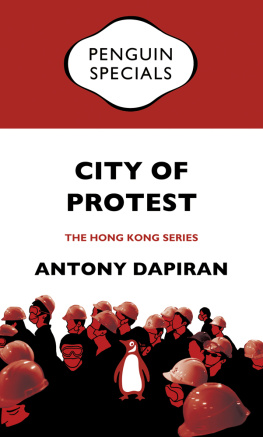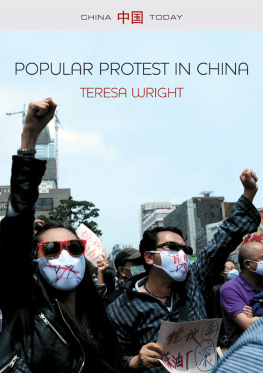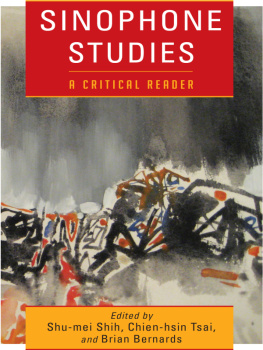The Politics of People
SUNY series in Global Modernity
Ravi Arvind Palat and Roxann Prazniak, editors
The Politics of People
Protest Cultures in China
SHIH-DIING LIU
Published by State University of New York Press, Albany
2019 State University of New York
All rights reserved
Printed in the United States of America
No part of this book may be used or reproduced in any manner whatsoever without written permission. No part of this book may be stored in a retrieval system or transmitted in any form or by any means including electronic, electrostatic, magnetic tape, mechanical, photocopying, recording, or otherwise without the prior permission in writing of the publisher.
For information, contact State University of New York Press, Albany, NY
www.sunypress.edu
Library of Congress Cataloging-in-Publication Data
Names: Liu, Shih-Diing, author.
Title: The politics of people : protest cultures in China / Shih-Diing Liu.
Description: Albany : State University of New York Press, [2019] | Series: SUNY series in global modernity | Includes bibliographical references and index.
Identifiers: LCCN 2018052661 | ISBN 9781438476216 (hardcover : alk. paper) | ISBN 9781438476223 (ebook)
Subjects: LCSH: Political participationChina. | Protest movementsChina. | ChinaPolitics and government2002
Classification: LCC JQ1516 .L5827 2019 | DDC 322.4/40951dc23
LC record available at https://lccn.loc.gov/2018052661
10 9 8 7 6 5 4 3 2 1
To my family, Wei and Walter
Contents
P ART I
B ODY AND S TATE
P ART II
P OLITICS OF A RTICULATION
P ART III
C ULTURAL R ESISTANCE
Illustrations
Acknowledgments
I thank the friends and colleagues who provided various kinds of help and assistance during the writing of this book: Baik Young-Seo, John Erni, Chu Yuan-Horng, Christopher Connery, Laurence Simmons, Feng Chien-San, Pun Ngai, Chien Sechin, Hao Yufan, Tony Schirato, and Chen Kuan-Hsing. I am especially grateful to Wang Hui and Ralph Litzinger, who read the first draft of this manuscript and from whose comments I benefited. Wang Hui has helped me stay motivated since 2004; Ralph provided really helpful feedback on the manuscript.
Some chapters emerge from exchanges with scholars working on questions of China, Hong Kong postcolonial, and global modernity. Chapter 3, . I thank the organizers of the two panels/conferences, Daniel Vukovich and Allen Chun, for their invitations and input.
I thank Andrew Kenyon for his excellent editorial advice throughout, and his patience in waiting for the final version of this book. Thanks also to Chelsea Miller, Diane Ganeles, and Hugo Lok for their help during the pre-production process. My appreciation to the Faculty of Social Sciences and RDAO at the University of Macau, for their long-term support of my research project. I also thank my graduate students at the University of Macau for their invaluable assistance, both intellectual and material: Lin Zhongxuan, Kong Mengxun, Su Chang, Geng Li, Zheng Qi, Zhao Zhilong and Xu Min. They have been a stimulating presence during the years that this book was taking shape. Thanks to their participation in the working meetings from which I have greatly benefited.
Finally, I would like to express my deep appreciation and memory to Arif Dirlik, who had enthusiastically supported this book project. I still remember when I was a student in Taipei and London during the late 1990s and early 2000s, I came across Arifs work and was extremely inspired by his critical spirit. In April 2013, when he came to visit the University of Macau and we met in person for the first time, he encouraged me to develop this project. He read my papers, provided suggestions, and invited me to publish in the SUNY series in Global Modernity. Unfortunately he cannot see the final version anymore. I still remember the conversation with him, his mental strength, voice and laughterall these moments will never be forgotten. Thank you, Arif.
Earlier versions of some chapters have appeared as follows, and I thank Taylor and Francis for permission to reprint here:
Chapter 3, , has been significantly rewritten for this volume from a paper published in 2015, titled The New Contentious Sequence since Tiananmen, Third World Quarterly 36 (11): 21482166.
Chapter 4, , was first published in slightly different form as The End of Occupation, Interventions: International Journal of Postcolonial Studies 19 (4): 507531, in 2017.
Chapter 6, , is a revised adaptation of an essay titled The Cyberpolitics of the Governed, Inter-Asia Cultural Studies 14 (2): 252271, originally published in 2013.
Introduction
People do revolt; that is a fact. And that is how subjectivity (not that of great men, but that of anyone) is brought into history, breathing life into it.
Michel Foucault, Useless to revolt?
Occupy!
On September 28, 2014, a student protest against the restrictive suffrage for the Hong Kong chief executive election, which opposition groups criticized as depriving Hong Kong people of their democratic rights to elect their own leader, quickly took on a wider and more serious significance. After the police arrested student leaders and activists who attempted to seize hold of Civic Square, thousands of people swarmed onto the streets downtown, chanting Release the students and We want true democracy. The protestors resisted the polices pepper spray with umbrellas, in the process creating a global media spectacle. Failing to disperse the recalcitrant crowd, the police fired teargas bombs at protestors. Incensed at the police response, protesters blocked the traffic arteries of the business districts of Hong Kong and Kowloon Islands. The occupied streets were transformed into a space of gathering resistance against state power and its apparatuses. This militant action created both partial anarchy and multiple points of resistance around the occupied zones. Some 200,000 participants turned out at the peak of the protest movement, and the confrontation lasted for an unexpectedly long period (79 days). The movements explosive intensity and magnitude surprised many, generating arguably the Chinese governments most serious political crisis since the 1989 Tiananmen occupation.

Figure I.1. Map of China. The map was created by the author via the software Mapbox.V4.3.0, www.mapbox.com.
In a context where political action is becoming more risky and tightly controlled, the physical occupation of public spaces, which has been characterized as an easily replicable tactic (Gould-Wartofsky 2015, 44), has come to be seen as a defiant political act. In light of the political sequence that followed, physically occupying Hong Kong public spaces served to both undermine the political authority of the government, and to disrupt routine business and bureaucratic activity. The act of occupation, different in a myriad of ways from conventional protest tactics, demonstrated the resolve of protestors to force the state to respond to their demands. The unfolding of the occupy protest provides an example of how popular politics can be expressed in a variety of unpredictable ways. If the ultimate aim of the occupation was to produce a response, the bodily, discursive, and creative dimensions of the political practices enacted during the process were successful.





